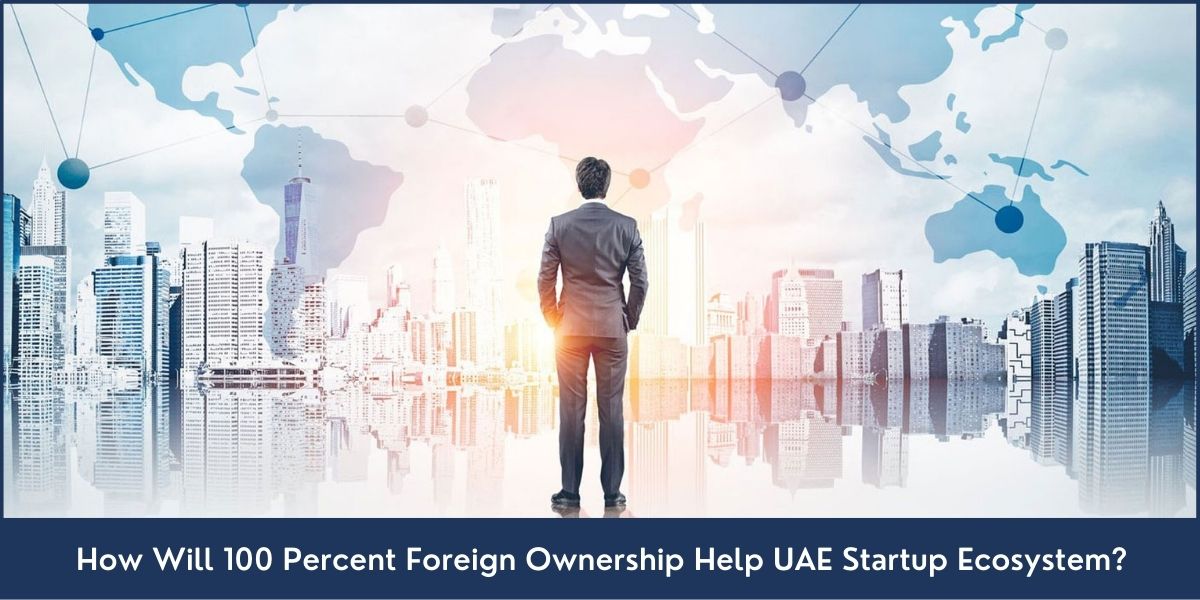The United Arab Emirates (UAE) has recently publicly announced the long-awaited 100 percent foreign ownership which does not require foreign investors to have a local UAE partner, as of 1st June 2021.
This change in law has the potential to completely change the foreign investment in the UAE and possesses the ability to have a far-reaching impact on the UAE economy. There is no denying that the UAE government has been aiming for economic diversification for quite some time and all the new rules and regulations and changes in the law have been introduced to achieve the aforementioned goal. The primary aim of this diversification has been to strengthen the UAE’s economy and help it move its dependency away from oil wealth alone.
Setting your business up in the UAE has now become a hassle-free and straightforward process thanks to lenient Foreign Direct Investment (FDI) regulations. However, the latest 100% foreign ownership law might impose a number of questions that cannot be answered at this particular time; for instance, should the venture capital ecosystem be looking to move away from the free-zones where they enjoy the relative ease of transacting and look to set up, relocate or investment onshore? These challenging questions can only be answered with time.
The three crucial takeaway points from this change of law on the UAE’s startup ecosystem are as following:
Applicability
Assessing the latest developments, it is understood that not all types of businesses will qualify for 100 percent foreign ownership in UAE. In order to maintain balance, each Emirate is also going to be issuing specific guidelines which need to be followed. We already know this much that there is going to be a minimum share capital requirement attached to the 100 percent foreign ownership; this can be derived from Abu Dhabi’s recently published guideline which saw the minimum share requirement for certain businesses which went as high as $4 million. This is just one of many ways to ensure that the system is not misused and there is a sense of neutrality across the board.
Similarly, other guidelines suggest that businesses in certain sectors will be required to hire at least 5 sector specialists; technology, in particular, is said to be one of those sectors as it requires ample knowledge. However, there is a lot of ambiguity when it comes to the complete guideline structure as the e-commerce and online marketplace guidelines are completely unknown at this time being. This is the primary reason why it will take some time to get accustomed to modern norms and culture.
Ease of Doing Business
This change of law will enable foreign investors to terminate their contracts with local owners as previously they were required to have a UAE entity or an individual. Not only that, the local ownership was required to be majority stakeholders i.e. 51 percent of the business. These arrangements are not only tedious to manage but also can prove to be costly in the long term. The law change will directly impact the local business landscape and benefit the onshore venture ecosystem greatly. The business transactions will be made much easier as they would not require any consultation with the local entity on paper either.
Despite all the changes and positive developments, the free zones are expected to dominate the venture capital ecosystem in the UAE according to many experts. The free zones are extremely crucial for early-stage startups and VC investors and those things are expected to remain the same for the foreseeable future
The only possible drawback is that since businesses tend to operate quickly, the physical presence might need to retained by the companies — not in the same capacity as a 51 percent ownership — but to attend meetings which are held with other local investors, distributors, or sellers. This is necessary because foreign owners cannot travel back and forth to really sort out these meetings. However, this is not that big of a concern as the cost of this will be much lower than before.
Venture FDI
The 100 percent foreign ownership in UAE is expected to make external fundraising much easier, according to industry experts. This is mainly because previously you already had a local entity that was designated owner of the 51 percent shares and getting into business for a lower company percentage makes it difficult to navigate from the investors’ perceptive. Since the new law removes this concern, the investors will now be much more likely to partner up with these complete foreign-owned companies and play a vital role which was previously a point of contention.
The industry experts summarised it the best and claimed: “It is unlikely that these changes will make setting up or investing onshore more attractive unless the relevant business is required to set up onshore because of its intention to provide goods or services outside of the free-zones.”








100% ownership will help alot people like me who have small investment and willing to start a new business in Dubai, instead of doing job. thanks for sharing.